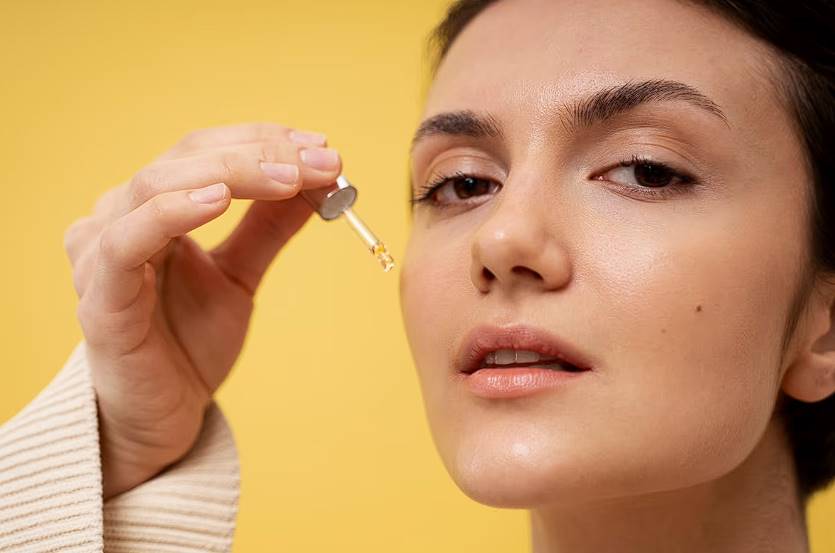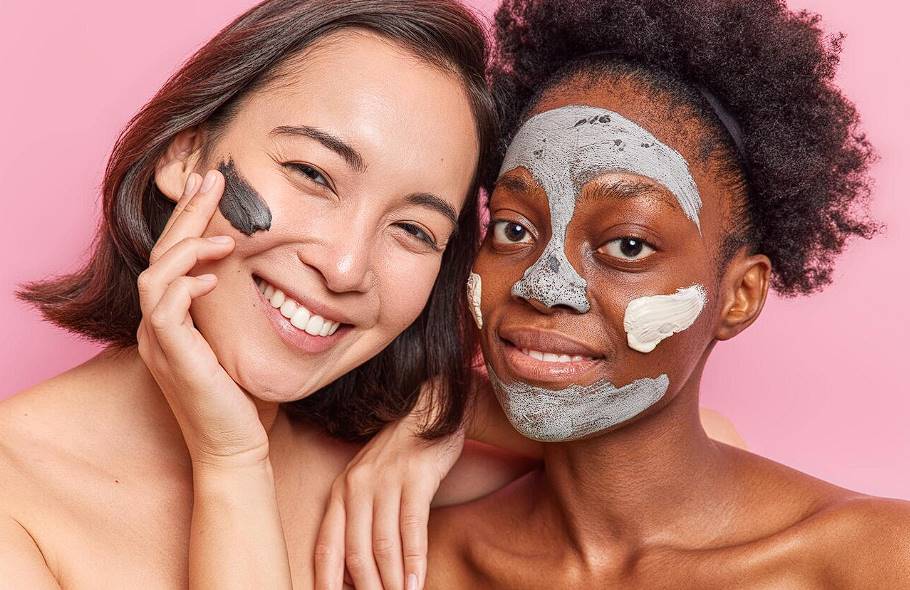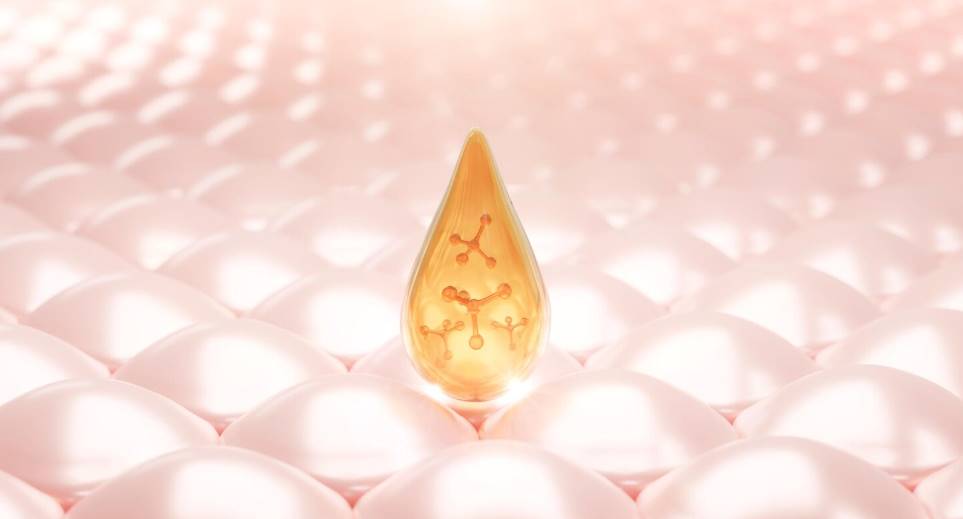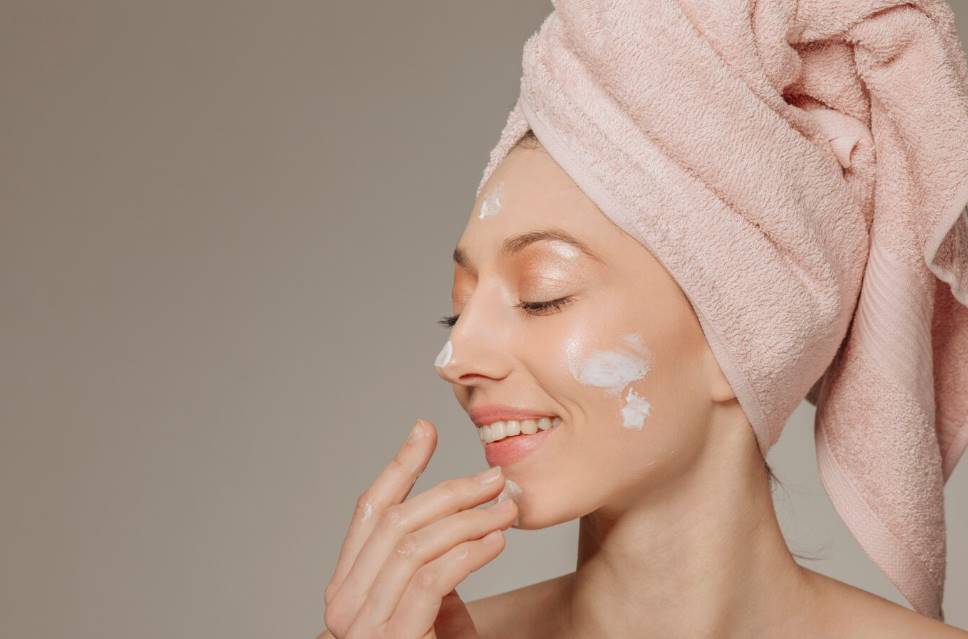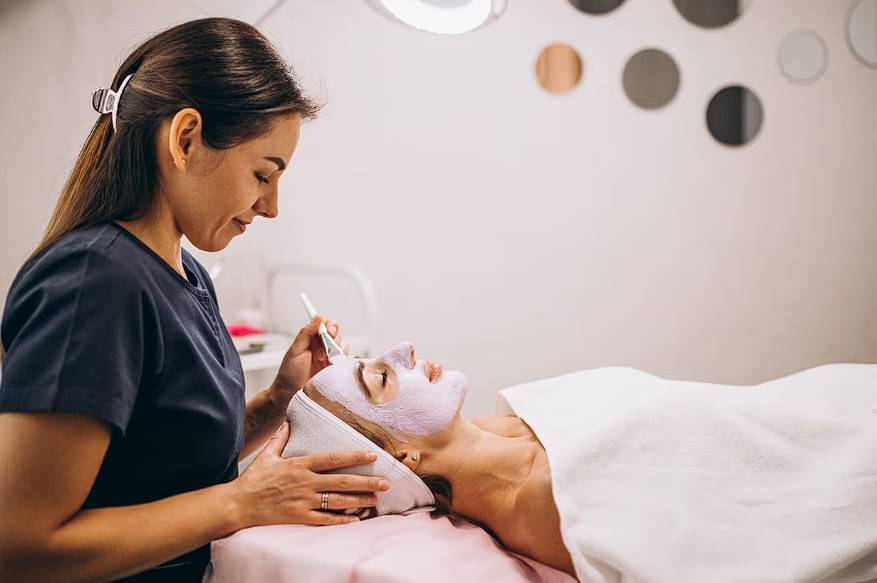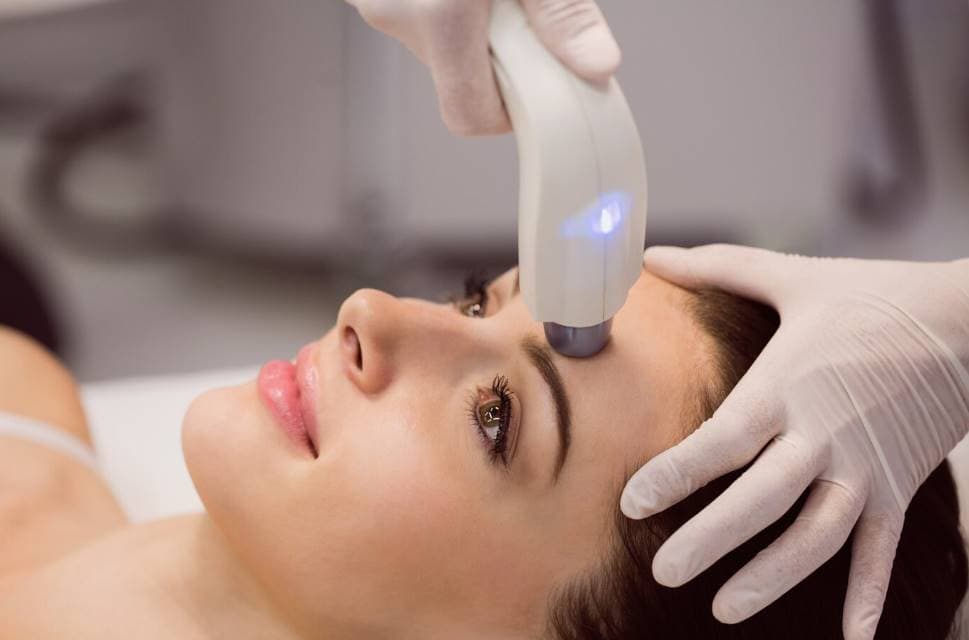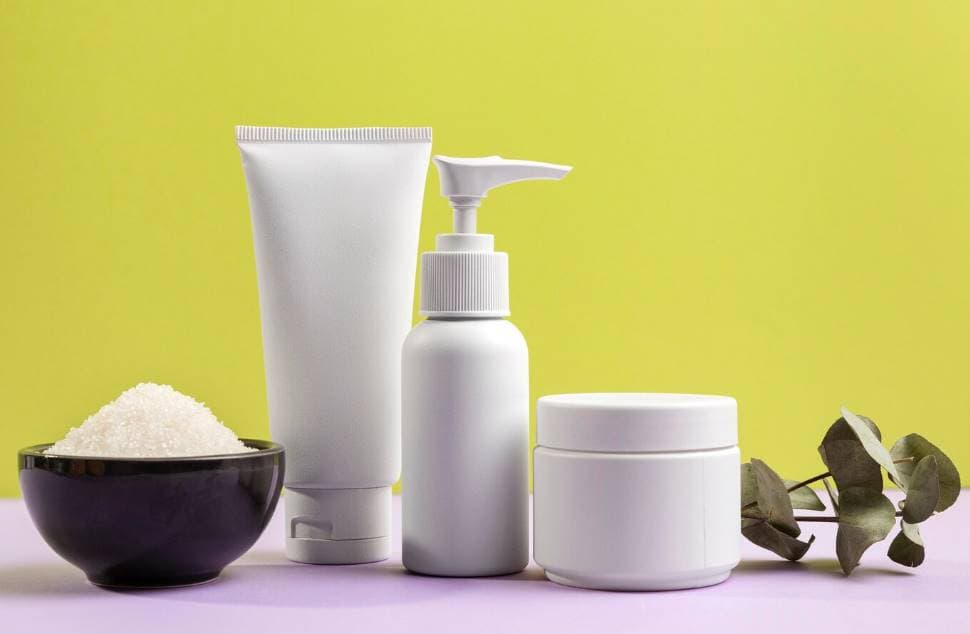Thirty per cent of the protein in your body is collagen. The skin, bones, muscles, and connective tissues benefit from it because it gives them support, structure, or strength.
A nutritious diet can provide the building blocks your body needs to make collagen on its own, despite the lack of evidence supporting most collagen supplements.
Celebrities and influential people have generated much interest in collagen drinks and supplements by praising its miraculous effects on the skin, hair, and nails.
Since collagen in our bodies offers vital support for these tissues, ingesting collagen could result in thicker hair and a more youthful appearance. However, what does research suggest?
Collagen
Our tissues rely heavily on collagen for their structure. It is a component of connective tissues, bones, hair, skin, and nails. Together with hyaluronic acid and elastin, collagen helps keep skin supple, plump, and hydrated. It's a component of keratin and other proteins essential for healthy skin, hair, and nails.
Collagen is a protein our bodies make from the amino acids in meals like bone broth, pork, and fish. However, collagen production declines with age, tobacco use, UV exposure, and alcohol usage.
Many collagen drinks and supplements include fish, cattle, pig, or chicken collagen. They typically include peptides, short chains of amino acids that contribute to the formation of collagen and keratin, two of the body's most vital proteins.
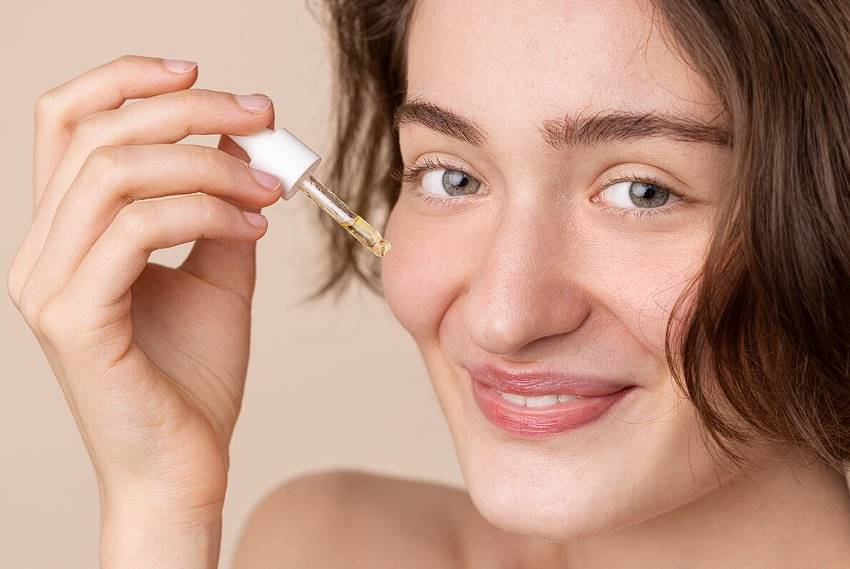
What Can Collagen Do?
Collagen's major role is to provide your body with structure, strength, and support.
Some of collagen's specialised functions are:
- Facilitating the development of new skin cells by promoting the formation of dermal fibroblasts.
- Contributing to the process of shedding old skin cells.
- Creating a barrier to prevent organs from being damaged.
- Improving the skin's strength, firmness, and flexibility.
- Facilitating the clotting of blood.
Various Forms Of Collagen
There are approximately 28 different kinds of collagen. Collagen types can be distinguished by how their molecules are formed, their additional cellular components, and the tissues in which they are used. There is always at least one triple helix structure in a collagen fibril.
Here are the five most common forms of collagen and the jobs they do:
- Type I.Making up about 90% of the body's collagen content, Type I offers a densely packed structure. It plays a pivotal role in shaping the skin, bones, tendons, and ligaments.
- Type II. Specifically found in elastic cartilage, Type II serves as a cushion for our joints, offering them flexibility and protection.
- Type III. This variant can be traced in muscles, blood vessels, and a range of internal organs, ensuring their proper functioning and structure.
- Type IV. Found in diverse areas like the cornea of the eye, certain skin strata, hair, and placental tissue, Type V collagen has specialised functions tailored to these regions.
- Type V. The cornea of your eye, certain skin layers, hair, and placental tissue include this kind.
What Affects Your Collagen Levels?
If you want to keep your collagen levels up, you should avoid these things:
- Smoking. Collagen synthesis is diminished by smoking. Wrinkles form and wounds take longer to heal since collagen and elastin are destroyed. Nicotine reduces blood flow to the skin's surface, which cuts off essential oxygen and nutrients.
- Having too much sugar and processed carbs. Advanced glycation end products are formed when sugar binds to proteins. These chemicals disrupt neighbouring proteins, which in turn weakens and dehydrates collagen.
- UV light exposure. Excessive exposure to sunlight inhibits collagen formation and hastens its breakdown. Wrinkles are caused by UV radiation from the sun. Sunscreen with an SPF of 30 or greater should be worn while going outside, and sun exposure should be minimal.
How Do Sciences Support Collagen Drinks And Supplements?
Studies on the skin consist of the following:
- Collagen supplement users' skin became more firm, supple, and hydrated, and their wrinkles faded in appearance. That's encouraging, but it's not obvious that collagen was responsible for the skin's improvement. Most studies used widely available supplements that included collagen and other substances like vitamins, antioxidants, minerals, hyaluronic acid, coenzyme Q10, and chondroitin sulphate.
- Collagen supplements containing significant levels of the peptides prolyl hydroxyproline and hydroxyprolylglycine have been shown in a small number of randomised controlled trials to enhance skin hydration, wrinkles, elasticity, and roughness. However, substantial, high-quality studies are required to determine whether or not products currently on the market are effective and safe for long-term usage.
- Collagen supplements to improve hair and nails have weak scientific backing. Taking 2.5 grammes of collagen daily for 24 weeks improved brittleness and nail development, according to a small 2017 study involving 25 adults with brittle nails. However, no group got a placebo to compare with the collagen supplement group in this tiny trial.
Human research addressing collagen supplementation's effects on hair health needs to be improved. Collagen pills and drinks are advertised to boost hair growth, volume, lustre, and thickness, but no scientific proof supports these claims.
Are Collagen Drinks Or Supplements Worth Trying?
There isn't enough evidence to suggest that collagen supplements or drinks improve hair, skin, or nails at this time. Collagen, in its natural state, is indigestible to humans. It can only be taken into the bloodstream after being digested and broken down into peptides.
Keratin, a protein involved in skin, hair, and nail formation, will likely be synthesised from these peptides. Collagen may also be formed from the peptides and deposited in other tissues, such as cartilage, muscles, bone, or tendons. No conclusive human studies have shown that ingesting collagen would result in improved skin, hair, or nails. Sun protection and topical retinoids are your best bets for achieving your desired results of smoother, younger-looking skin with fewer fine lines and wrinkles.
Extensive studies have shown that these interventions work. Check the protein profile and ingredient list before trying collagen supplements or drinks. Supplements with unnecessary fillers or additions should be avoided. High-quality wrinkle-reduction and skin-hydration products tend to be rich in prolylhydroxyproline and hydroxyprolylglycine.
Never start a new supplement without discussing it with your doctor beforehand. Those with gout or any ailment that calls for a low-protein diet should avoid Collagen supplements and drinks.
The Positive Effects Of Collagen Supplements
Could Enhance Skin Health
The skin relies heavily on collagen. It helps with the skin's elasticity, resilience, and hydration. Dry skin and wrinkles result from your body producing less collagen as you age.Nonetheless, several studies suggest that collagen peptides or supplements can help you delay aging by decreasing wrinkles and dryness.
Taking 3-10 grammes of collagen daily for an average of 69 days led to increased skin elasticity and moisture, according to a meta-analysis of 11 research focusing on women.
These vitamins may help since they encourage natural collagen production. Collagen supplements may also stimulate the formation of elastin and fibrillin, two additional proteins essential to skin structure. Many anecdotal reports state that taking collagen supplements has helped people with acne and other skin disorders, but no proof supports these claims.
Could Ease Arthritic Pain
Cartilage, the rubbery tissue that cushions and protects your joints, relies on collagen to stay in good shape. Degenerative joint problems, such as osteoarthritis, are more common as people age because of the decline in collagen production.
In some research, collagen supplements have been linked to a decrease in joint pain and improvement in osteoarthritis symptoms. Collagen supplementation significantly reduced joint stiffness and overall osteoarthritis symptoms, according to a meta-analysis of clinical trials including adults with osteoarthritis.
According to the research, supplemental collagen may collect in cartilage and prompt your tissues to produce collagen. This, in turn, may result in less swelling, stronger support for the joints, and less discomfort. Experts warn that more research is needed to confirm these findings before collagen can be recommended as a treatment for osteoarthritis.
Could Stop Bone Loss
Collagen provides the framework and strength for your skeleton. Bone mass declines with age in the same way as collagen does in the body. This can result in osteoporosis, a disease characterised by decreased bone mass and increased fracture susceptibility. Collagen supplements have been linked in certain research to a reduced risk of bone loss and osteoporosis.
Daily calcium and vitamin D supplementation with 5 grammes of collagen or without collagen was compared in a 12-month research involving postmenopausal women.
Proteins in the blood that promote bone disintegration were much lower in the people who took the calcium, vitamin D, and collagen supplement at the end of the trial than those who received just the calcium and vitamin D supplement. There was also less bone mineral density in the collagen group.
In a separate trial, postmenopausal women who took 5 grammes of collagen daily for a year saw similar benefits. The collagen group showed a greater bone mineral density (BMD) increase of up to 7% compared to the non-collagen group.
Bone mineral density (BMD) is a metric used to evaluate the health of your skeleton. The risk of osteoporosis and bone fragility increases with low bone mineral density.
More research with humans is required, but the preliminary findings are encouraging.
Could Increase Muscular Mass
Collagen, the body's most abundant protein, plays a significant role in skeletal muscle.
Collagen supplements may help reverse the age-related decline in muscular mass known as sarcopenia.
Twenty-seven middle-aged men with this ailment participated in a 12-week research, during which they exercised and ingested 15 grammes of collagen. They gained much more muscular mass and strength than males who exercised but did not take collagen.
After exercise, taking collagen supplements has been shown to increase protein synthesis and muscle growth.
Collagen does not significantly improve muscle or strength development compared to whey protein. This is due to collagen's lack of branched-chain amino acids essential for muscle development. Whey protein contains a higher concentration of these amino acids.
The potential of collagen to increase muscle mass has to be studied further.
Might Strengthen The Heart
Collagen supplements may help lower cardiovascular disease risk, according to certain studies.
Arteries, the blood veins that transport blood from the heart to the rest of the body, rely on collagen for their structure. Arteries may become stiffer and less elastic if collagen levels drop too low.
This can cause atherosclerosis, which causes your arteries to harden and narrow. Heart attacks and strokes are possible outcomes of this illness. Thirty-one healthy adults took 16 grammes of collagen every day for six months. By the end of the trial, their arterial stiffness had decreased significantly on all measures .
In addition, their HDL cholesterol levels increased by about 6 per cent. High-density lipoprotein (HDL) is correlated with a reduced risk of cardiovascular disease and atherosclerosis. However, the link between collagen supplements and cardiovascular health needs further investigation.
Other Health Benefits
Collagen supplements may provide further benefits, but research on this is limited.
- Nails and hair. Taking collagen may help you maintain strong nails by reducing the likelihood of brittleness. It may also promote longer hair and nails.
- Gut health. Despite the lack of proof, some doctors recommend collagen supplements for treating leaky gut syndrome, also known as intestinal permeability.
- Brain health. Collagen supplements have been touted as mood boosters and anxiety relievers, but no research has examined their effect on the brain.
- Reduced weight. Collagen supplements, according to their proponents, may hasten metabolic rate and hence aid in weight loss. However, there are no studies to back up these assertions.
Although the prospective consequences are encouraging, more study is required before definitive conclusions can be drawn.
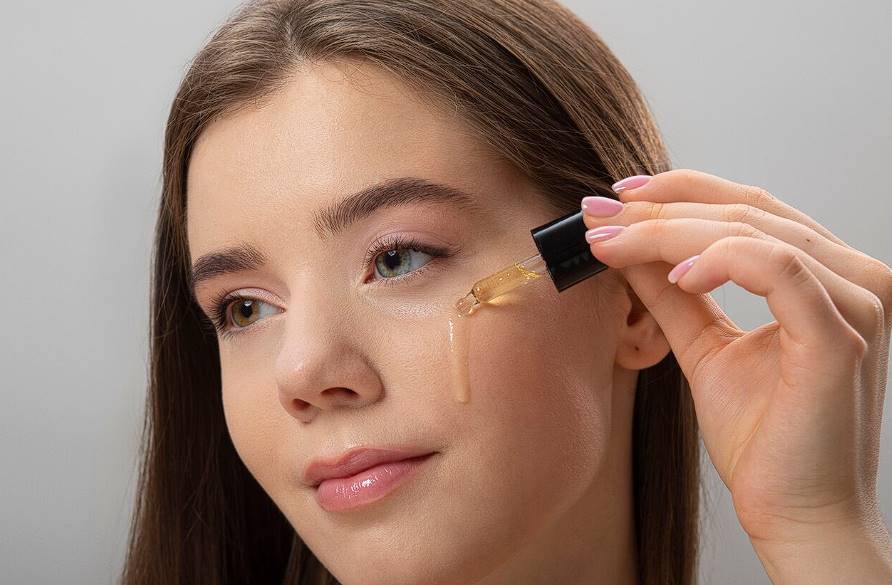
How About Creams With Collagen?
Retinol and tretinoin, two topical therapies, have been shown in scientific studies to increase collagen production. In addition, anti-inflammatories like vitamin C can repair the collagen damage caused by inflammation. From what we know, people are likely to benefit more from retinol or vitamin C skin care products than from a collagen-containing cream.
Conclusion
Collagen is a protein that makes up about 30% of the body. It is important for the structure and strength of bones, muscles, and connective tissues. It is a part of keratin and other proteins that keep skin, hair, and nails healthy.
Collagen creation goes down with age, smoking, being in the sun, and drinking alcohol. Collagen drinks and vitamins usually have collagen from fish, cattle, pigs, or chicken. Collagen is made up of peptides that help make collagen and keratin.
To keep collagen levels up, don't smoke, eat too much sugar and processed carbs, or get too much UV light. Wear sunscreen with an SPF of 30 or more when you go outside, and stay out of the sun as much as possible.
Collagen supplements have been shown to improve the elasticity, firmness, and moisture of the skin, but there isn't enough proof to prove that they are good for the hair, skin, or nails. Humans can't process collagen in its natural form. It can only get into the bloodstream after it has been digested and broken down into peptides.
Collagen products may help make more of the proteins elastin and fibrillin, which are important for the structure of the skin. Some personal stories say that collagen pills helped people with acne and other skin problems, but there is no proof to back up these claims.
Since collagen is what gives cartilage its shape, collagen vitamins may also help ease the pain of arthritis. Studies have shown that collagen supplements can make joints less stiff and ease other signs of osteoarthritis.
Before collagen can be recommended as a treatment for osteoarthritis, though, more study needs to be done to back up these findings. The best ways to get better skin with less fine lines and wrinkles are to stay out of the sun and use topical retinoids.
Collagen is what gives the skeleton its shape and strength, so taking collagen supplements has been linked to a lower chance of bone loss and osteoporosis.
Studies have shown that collagen supplements can help prevent sarcopenia, which is the loss of muscle mass that comes with age. Sarcopenia is also the loss of bone mass that comes with age.
After working out, collagen pills have also been shown to make muscles bigger and stronger. But not much research has been done on collagen's ability to make muscles bigger.
Collagen supplements may also lower the chance of heart disease because they help keep nails and hair strong, improve gut health, and help people lose weight. But more study needs to be done to find out what the link is between collagen supplements and heart health.
It has been shown that collagen creams with retinol and tretinoin can make more collagen and fix collagen damage caused by inflammation. But more study needs to be done before any firm conclusions can be made.
Content Summary
- Collagen makes up 30% of the body's protein.
- The protein provides structure and strength to skin, bones, muscles, and connective tissues.
- A balanced diet can aid natural collagen production.
- Celebrity endorsements have amplified the buzz around collagen supplements.
- Collagen has key roles in maintaining the skin, hair, and nails' health.
- Alongside hyaluronic acid and elastin, collagen keeps the skin hydrated and plump.
- Collagen combines with keratin to promote skin, hair, and nail health.
- Foods like bone broth, pork, and fish are rich in collagen.
- Factors like age, smoking, UV exposure, and alcohol decrease collagen production.
- Collagen drinks and supplements primarily source from fish, cattle, pig, or chicken.
- Peptides found in supplements contribute to collagen and keratin formation.
- Collagen's core function is providing structure and support to the body.
- Collagen aids in new skin cell development.
- The protein plays a role in discarding old skin cells.
- Collagen forms a protective barrier for organs.
- The protein is essential for blood clotting.
- There are 28 types of collagen, each with distinct characteristics.
- Type I collagen shapes the skin, bones, tendons, and ligaments.
- Type II collagen acts as cushioning for joints.
- Type III is present in muscles, blood vessels, and organs.
- Type IV collagen is vital for the eye's cornea and certain skin layers.
- Type V collagen plays a role in eye health and certain skin layers.
- Factors affecting collagen levels include smoking, excessive sugar, UV light exposure.
- UV radiation from the sun can damage collagen.
- Research on collagen supplements for skin shows mixed results.
- Collagen might have a role in skin hydration and elasticity.
- Some evidence suggests collagen may ease osteoarthritis pain.
- The protein could play a part in preventing bone loss.
- Collagen might help combat muscle mass decline.
- There's emerging research on collagen's potential heart benefits.
- Collagen may support strong nails and hair health.
- Some believe collagen aids gut health, but evidence is scant.
- Collagen's effect on the brain remains unexplored.
- Some speculate collagen may help with weight loss.
- Collagen creams face competition from established treatments like retinol.
- Retinol and tretinoin have proven abilities to boost collagen.
- Vitamin C can help counteract collagen damage from inflammation.
- External collagen application may not be as effective as retinol or vitamin C products.
- Collagen is an essential component for arterial health.
- Reduced collagen can lead to arterial stiffness, increasing heart risks.
- Daily collagen intake has shown to improve arterial health in some studies.
- Topical collagen applications face competition from established skin treatments.
- High-quality wrinkle-reducing products are rich in specific peptides.
- It's essential to consult a doctor before starting collagen supplements.
- Collagen's natural form is indigestible, but it's processed into peptides for absorption.
- Collagen may stimulate elastin and fibrillin production in the skin.
- Sun protection and topical retinoids remain trusted methods for skin health.
- Collagen's role in overall wellness needs more comprehensive research.
- Collagen supplements have a wide range of potential health benefits.
- The collagen trend continues to grow, but it's vital to choose products wisely.
Frequently Asked Questions
Collagen works with other substances, such as hyaluronic acid and elastin, to maintain skin elasticity, volume, and moisture. It also helps make up proteins such as keratin that form skin, hair, and nails.
Studies show that it takes about 6 to 12 weeks of regular supplementation to see noticeable improvements in your skin, including its elasticity, hydration and density. One factor contributing to why collagen is taking its time to provide results is its low dosage amount through supplement intake.
Experts say it's unlikely — especially without evidence. Despite popular belief that collagen supplements can help strengthen our skin, we have little data to support this truly.
Research shows that taking 2.5 to 15 grams daily of hydrolysed collagen is safe. A smaller dose benefits your joints and skin, while a larger amount may help with body composition and muscle mass.
After six weeks of supplementation, fine lines around the eyes and mouth soften. As the collagen matrix becomes stronger and thicker, skin regains its firm, smooth qualities to minimise the appearance of deeper wrinkles. After 12 weeks, skin elasticity is improved.
